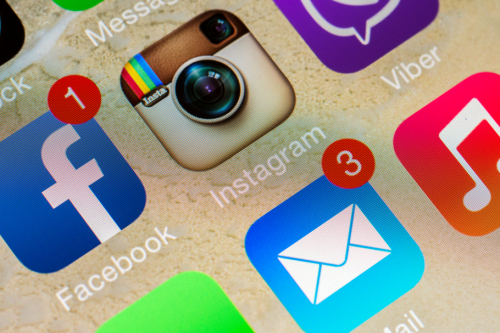From Bank Underground, Nov. 24:

Smartphone apps and newsfeeds are designed to constantly grab our attention. And research suggests we’re distracted nearly 50% of the time.
Could this be weighing down on productivity? And why is the crisis of
attention particularly concerning in the context of the rise of AI and
the need, therefore, to cultivate distinctively human qualities?
Are we losing our attention?
In a world of information overload, what do we pay attention to?
This question has become increasingly relevant in the digital age.
With the rise of smartphones in particular, the amount of stimuli
competing for our attention throughout the day has exploded. A survey from 2013 found that we check our phones 150 times per day, or roughly once every 6½ mins; a more recent study found that the average smartphone user spends around 2½ hours each day on his or her phone, spread across 76 sessions.
In the context of this huge cultural shift, our attention emerges as a
scarce and valuable resource and the ‘attention economy’ has become a
growing area of study (see, for instance, Terranova (2012)). Some models seek to explain how we allocate our attention online. The theory of rational inattention,
meanwhile, starts with the assumption that information is costly to
acquire, hence decision-makers may rationally take decisions based on
incomplete information.
Another line of enquiry, and the focus for this post, stems from the claim that we are more distracted than ever as a result of the battle for our attention. One study, for example, finds that we are distracted nearly 50% of the time.
This ‘crisis of attention’ is seen as one of the greatest problems of
our time: after all, as the American philosopher William James noted, our life experience ultimately amounts to whatever we had paid attention to.
Might the crisis of attention be affecting the economy? The most
obvious place to look would be in productivity growth, which has been persistently weak across advanced economies over the past decade (during which time, as it happens, global shipments of smartphones have risen roughly ten-fold).

How might distractions be weighing down on productivity?
The intuition is simple enough: our minds comprise the bulk of our
human capital and what we direct our attention towards is integral to
the ‘output’ of our mental activity. You would therefore expect the
ability to pay attention to be a key input into productivity.
In the vast literature on the determinants of strong performance in
the workplace, some studies consider the role of attention. But there is
little linking these to productivity in the economy as a whole. Partly
this is because observing inner states (attention) and mapping these to
outcomes (productivity), taking account of other relevant factors, is
inherently tricky. Yet there is mounting research that can help us start
to address this question. My aim here, rather than giving a definitive
answer, is to set out a framework for thinking about this issue. My
contention is that distractions at work – whether from work emails,
smartphone notifications or office noise – might cause weaker
productivity via two main channels.
Channel 1: The direct impact of distractions on the amount of effective time spent working
Surveys offer estimates of the time workers spend ‘cyberslacking’ – using the Internet and mobile technology during work hours for personal purposes. The US Chamber of Commerce Foundation
finds that people typically spend one hour of their workday on social
media – rising to 1.8 hours for millennials. Another survey, meanwhile,
found that traffic to shopping sites surged between 2pm to 6pm on weekday afternoons....MUCH MORE

